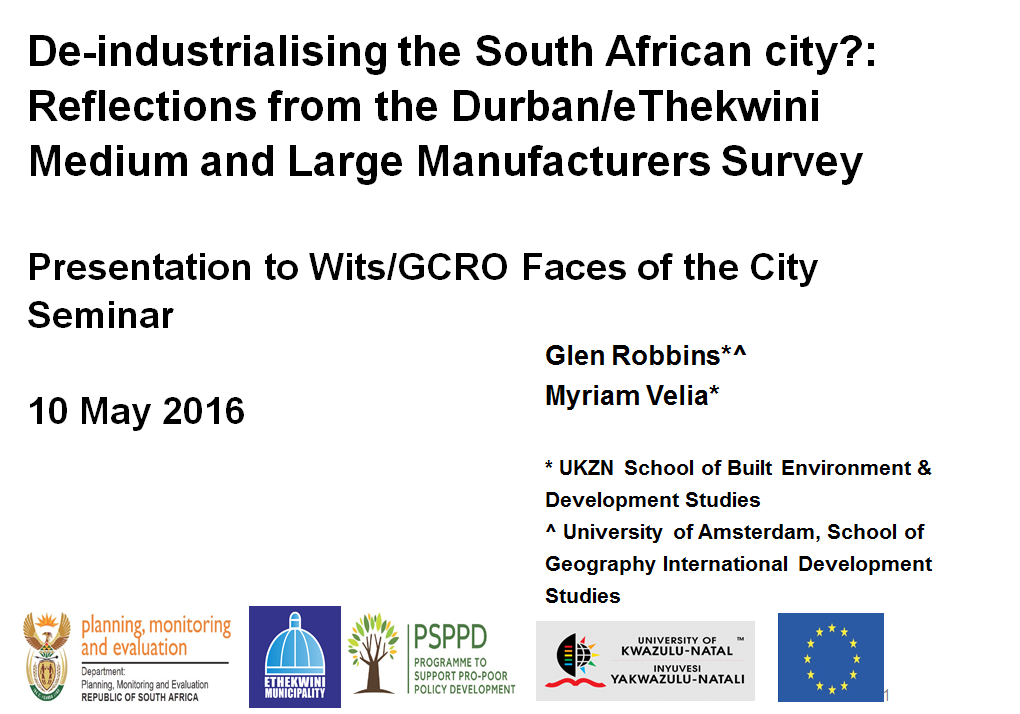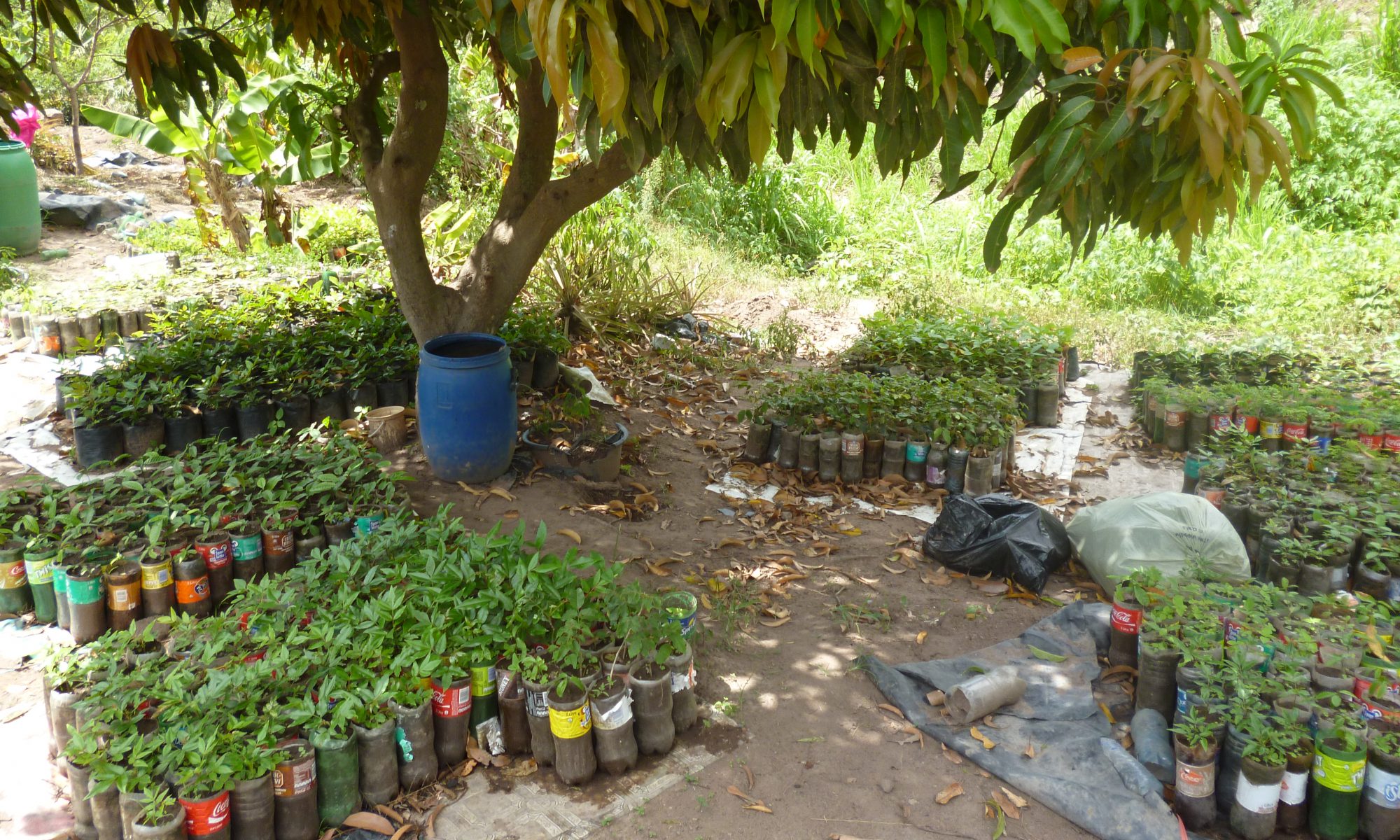by Audrey Moyo
Glen Robbins and Myriam Velia presented at the Wits/GCRO Faces of the City Seminar on the 10th of May 2016. Their presentation was titled “De-industrializing the South African city?: Reflections from the Durban/eThekwini Medium and Large Manufacturers Survey”. The major aim of the presentation was to present data from firms on what local “industrial policy” responses should focus on. Their presentation highlighted that the contribution of South Africa’s manufacturing sector has been in decline as share of GDP since the late 1980s and the contribution of total (formal + informal) manufacturing employment to total employment has been in decline as a share and in absolute terms (based on their analysis of StatSA data).

Furthermore, there were some national policy responses that were highlighted, for instance introduction of a raft of application driven, modestly funded, supply-side programmes (workplace challenge, competitiveness fund, export promotion support) and two priority sector initiatives – automotive & clothing as well as Spatial Development Initiatives to unblock potential for major export industries through special zones and major infrastructure development.
In the same manner, there is a need for local government to follow up and understand what the issue in the area of skills on the ground is and how the implications of the skills shortage problem can motivate for the right interactions with national government. Local government can also consider having an open dialogue with local stakeholders and keep lines of communication open. Furthermore, local and provincial government can consider claiming a stronger local role in industrial policy, while demonstrating real programmes & real investments behind evidence-informed initiatives. On the other hand, national and provincial governments can consider what can/should be done around the spatially differentiated features that are important to a broader notion of industrial policy regarding skills, costs of doing business, infrastructure maintenance.
